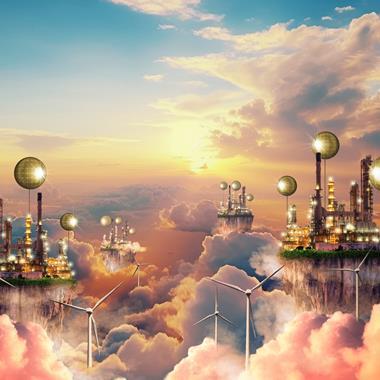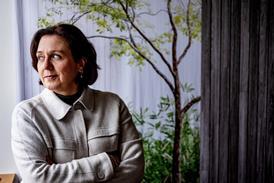
Refinery of the Future
This special edition, produced in collaboration with the consortium ARC CBBC, explores the concept of the “Refinery of the Future”, a crucial yet challenging vision. Would it be possible to build a fully fossil-free refinery that could meet post-2050 demands by employing new feedstocks, new energy sources and new processes? You’ll find answers to this question and much more in this special.
Methane pyrolysis: A balancing act on multiple levels
Researchers from Utrecht, Eindhoven and Delft are teaming up with several industrial partners in a five-year multilateral ARC CBBC project to carry out optimisation at both atomic and reactor scale of methane pyrolysis.
Lees artikelTowards the Refinery of the Future
Defining the future of the chemical industry is a good start, but realizing these visions will prove challenging. We asked Bas de Bruin, Guido Mul and Atsushi Urakawa, all of them PIs within ARC CBBC, to share their ideas on how we can turn that envisioned future into reality.
Functional coatings are the future
If you ask ARC CBBC researchers, future coatings will be able to adapt to light, temperature or chemicals and even be self-healing.
The rise of electrosynthesis
Electrosynthesis is gaining traction as an interesting method to enable sustainable production processes. For example, by creating relevant chemical building blocks from carbohydrates.
Creating colours
Colour is an intriguing phenomenon, as it is truly in the eye of the beholder. To create that sensation of colour, nanometer-scale particles need to be structured in just the right way.
Lees artikelTime for chemistry to change lanes
To keep pace with a rapidly changing world, the chemical industry will have to reinvent itself, says Bert Weckhuysen, scientific director of the ARC CBBC consortium.
Lees artikelA passion for Green Chemistry
When you’re driven by something bigger than yourself, it’s hard to put your work down, says Thomas Freese (32).
‘It is important to know the industrial conditions’
With the end of her PhD track in sight, Sofie Ferwerda explains how she navigates the worlds of academia and industry in her research, which includes a collaboration with BASF.
Becoming a 21st century chemist
Combining transdisciplinary challenge-based education with design thinking creates a unique environment for students to learn skills that will help them navigate sustainability transitions.
Circus
You won’t see editor-in-chief Esther Thole charging down a black slope. But when it comes to mindblowing science, she can stomach steep descents and sharp curves.
Lees artikelElexel: Accelerating electrochemical innovation
Marie Brands just went for it. Driven by her passion for sustainability, she founded Elexel, an independent electrolyzer testing and scale-up service company. Though it is still in its early stages, she dreams big.
Lees artikelPET upcycling reveals fundamental catalysis stages
In a paper published in Angewandte Chemie, a British-Dutch research team revealed a method of upcycling PET waste into a pharmaceutical precursor using an suboptimal catalyst. They also gained insights into the catalytic mechanism.
Fungal powder to feed the world
Fermentation has a positive ecological footprint. Dutch start-up The Protein Brewery uses this process to ‘brew’ a fungus that is a highly nutritious, complete source of protein. ‘We are becoming more aware that animal proteins alone are insufficient.’
Silky smooth transition from bachelor to PhD
After completing two bachelor’s degrees in Spain, Cristina Izquierdo Lozano bypassed the master’s degree-route and started her PhD research at Eindhoven University of Technology. Her pursuit of new acquaintances led her to take up aerial silks.
‘Breakthroughs in science emerge bottom-up’
Multidisciplinary research is one those buzzwords that pop up everywhere. But creating an environment where scientists are eager to share their expertise requires more than mere lip service, says ICMS scientific director Jan van Hest. ‘Multidisciplinarity is not just a box to be ticked, but it is an absolute prerequisite ...
The scientist’s eyes
Studying nanostructures at near-atomic resolution is the bread and butter of the ICMS Center for Multiscale Electron Microscopy. Here, Heiner Friedrich and his team are continuously improving these already advanced techniques to provide an even more accurate view with minimal noise and high throughput.
The matchmaking concierge
Creating a stimulating, mutually beneficial interaction between science and industry is the priority of the ICMS Industrial Consortium. ‘We try to meet the needs of all participants: ICMS, university faculty, industry and start-ups.’
Wealth
While pondering the wonders of the material world, Editor-in-chief Esther Thole is immediately thrown back to an 80s classic featuring a superstar in a pink gown.





















